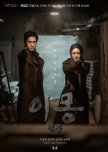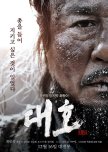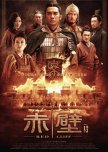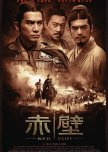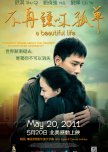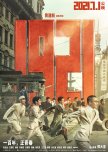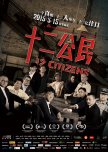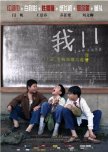Fung and his best friends, brothers Kang and Hu, leave the countryside together to make it big in Shanghai. Things aren't so easy in the city, however, and the brothers stumble and toil until opportunity brings them to Club Paradise and ruthless mob boss Hong. While Kang embraces his newfound power in the Shanghai triad, Fung and Hu are less comfortable with the crime and violence, sending the brothers slowly but surely down opposite paths. Fung falls for Hong's woman, sassy nightclub singer Lu Lu, who is also involved with Hong's top henchman Mark. When Hong catches the scent of the betrayal, he sends Kang to finish off business, leading the brothers to meet at gunpoint on a cold Shanghai night. (Source: AsianWiki) Edit Translation
- English
- magyar / magyar nyelv
- dansk
- Norsk
- Native Title: 天堂口
- Also Known As: Tian Tang Kou
- Screenwriter & Director: Alexi Tan
- Genres: Action, Drama
Cast & Credits
Reviews

The three blood brothers started out dirt poor in rural China. Two were actual biological brothers, one the ruthlessly ambitious brawn (Kang) and the other, the follower lacking in confidence (Hu). The third blood brother (Fung) would be considered a more thoughtful character who wanted to earn enough money to take care of his mother and marry the girl he cared about. The three traveled to Shanghai and ended up working at the Paradise Club, a front for gangland activity. Kang took to it like a fish to water. Merciless and determined to rise in the ranks, he enjoyed the killing. Hu and Fung struggled with the violence and death.
Shu Qi played the enchanting singer and dancer, Lulu, caught between the deadly gang boss and the man she loved, Chang Chen's assassin, Mark. She toyed a little with Fung, but he was never in serious contention. Mark wanted to free Lulu from the boss by killing the big man but had been unable to do so. Lulu's desire to become an actress overrode her survival instincts causing her to refuse to leave Paradise.
The story started out slow, building steam until the stories converged, ultimately exploding into death and mayhem. Most of the story was predictable which is not always a drawback with this genre. The biggest problem it had was with pacing and editing. Some of the transitions were not seamless and felt like footage connecting the scenes had ended up on the cutting room floor.
Another drawback was that the audience was supposed to shortcut to understanding the depth of the bond between the brothers because we've seen it in so many movies. This created problems as the movie went along and I was left wondering if I should really care about these men.
What Blood Brothers lacked in story, it made up for in sets and costumes. Gorgeous and lush, lovingly shot, Blood Brothers was a very stylish film. Shu Qi and Chang Chen's performances carried much of this film. The brothers could be vaguely interesting, but again, they never reeled me in.
Five Venoms Phillip Kwok was the action director and kept the movie interesting with the action scenes when the story had trouble moving forward. People were killed in a variety of gruesome manners. Because most of them were bad guys, their deaths carried little weight.
Despite the pacing issues and bland performances by the brothers, I never lost interest in the movie and enjoyed it for the most part. Other than dressing itself in beautiful clothes and sets, Blood Brothers did little to set itself apart, but sometimes a familiar story in a pretty package is enough to spend some time with.
Was this review helpful to you?

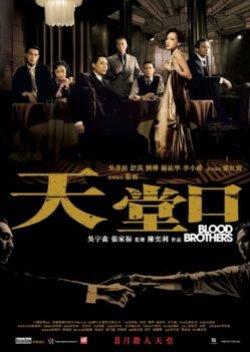






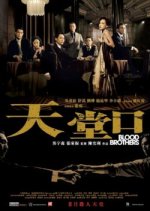
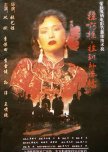


![[✔] Movies watched in 2019](https://i.mydramalist.com/72ynDt.jpg)
![[✔] Movies watched in 2019](https://i.mydramalist.com/E8N0lt.jpg)
![[✔] Movies watched in 2019](https://i.mydramalist.com/xmRo0t.jpg)
![[✔] Movies watched in 2019](https://i.mydramalist.com/24NmEt.jpg)
![[✔] Movies watched in 2019](https://i.mydramalist.com/Ld5r5t.jpg)
